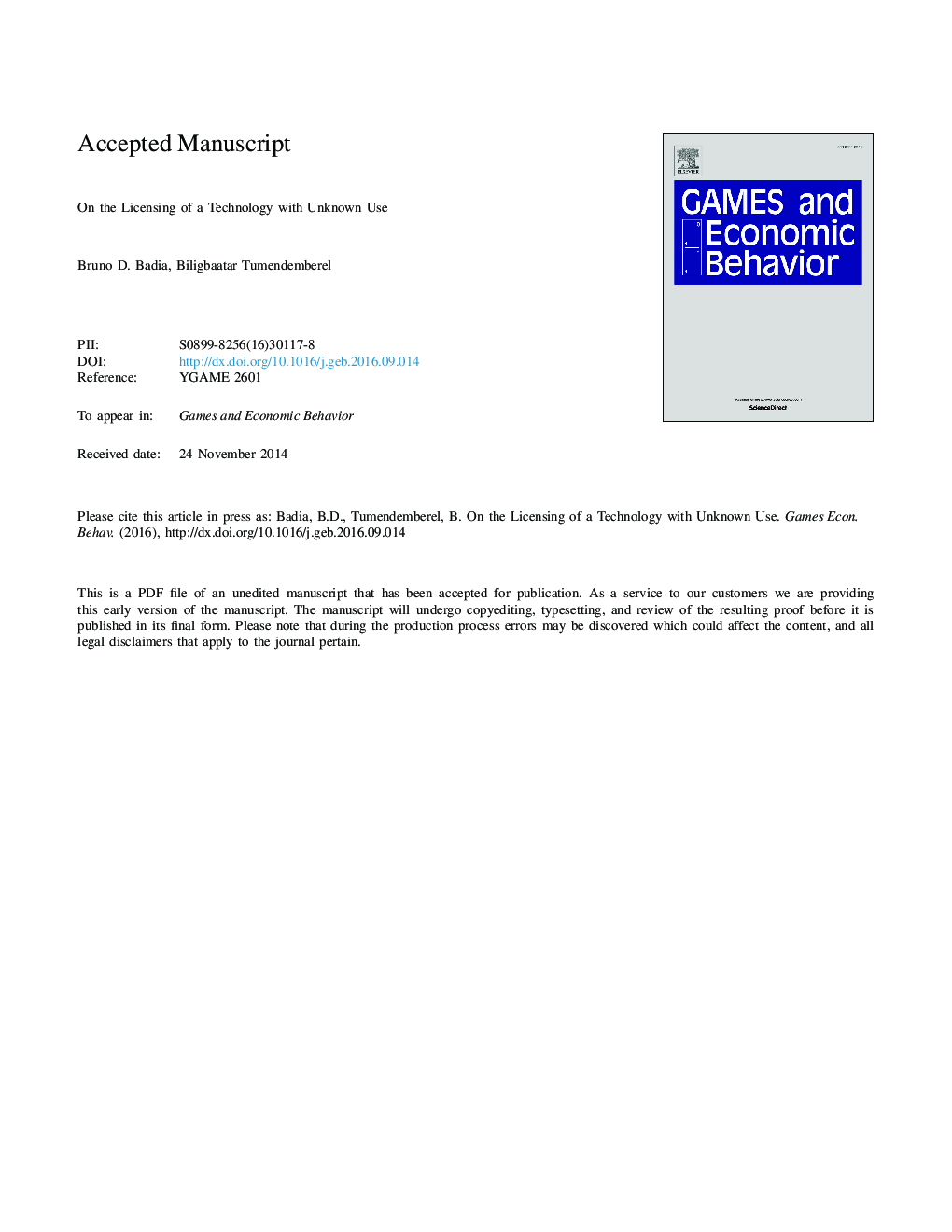| Article ID | Journal | Published Year | Pages | File Type |
|---|---|---|---|---|
| 5071452 | Games and Economic Behavior | 2016 | 28 Pages |
Abstract
We consider the problem facing the patentee of a technology that may be used to reduce the costs of firms in an industry. The technology's ability to cut costs depends on a use for it being discovered and the patentee has the option of trying to discover the use before licensing the technology to the firms. Should the patentee try? To answer this question, we model the interaction between the patentee and the firms as a game in extensive form. The first move in the game belongs to the patentee, deciding whether to carry a trial. Next, there is a licensing stage, followed by Cournot competition involving licensees and nonlicensees. We show that if a failure leads to the belief that the technology is most likely useless to the firms, then not trying to discover the use is optimal, even if a trial is free of pecuniary costs.
Related Topics
Social Sciences and Humanities
Economics, Econometrics and Finance
Economics and Econometrics
Authors
Bruno D. Badia, Biligbaatar Tumendemberel,
